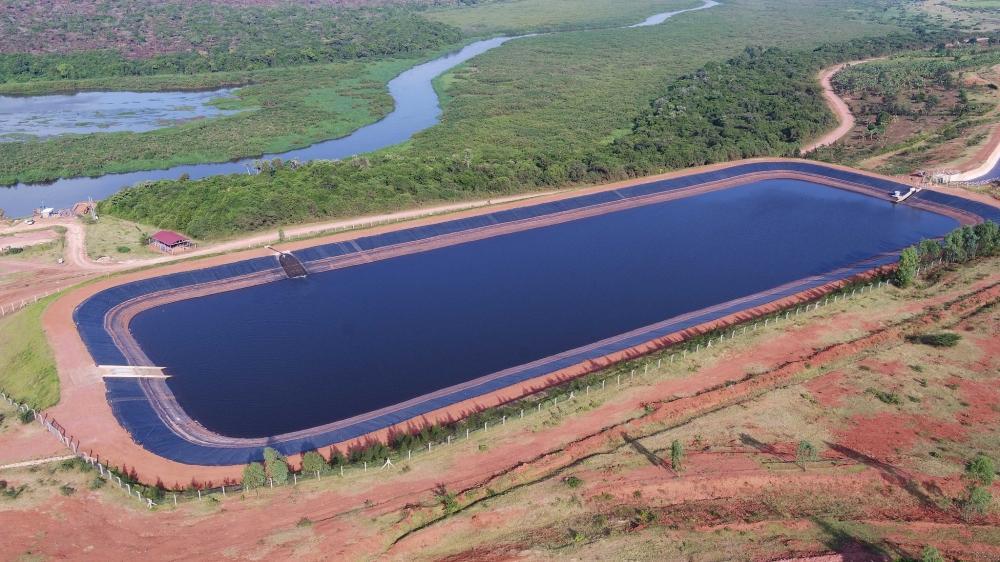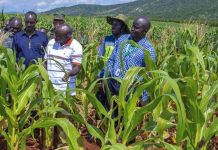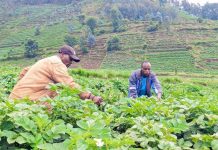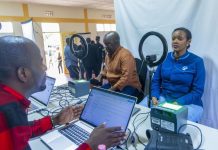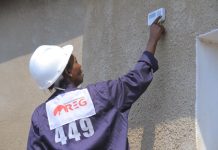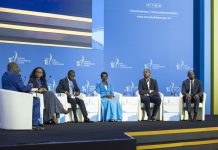Africa-Press – Rwanda. Parliament on May 24 approved the relevance of the national budget bill for the fiscal year 2024/25, under which the government plans to spend over Rwf5,690.1 billion, a 11.2% increase from the Rwf5,115.6 billion approved in the previous fiscal year.
The budget is intended to sustain the economic growth, scale up climate change mitigation efforts, and fund crucial investments in agriculture, private sector development, youth employment, energy, ICT, transport, and financial development.
It will speed up the implementation of key projects in priority sectors such as health, education, disaster management, social protection, governance, justice, and reconciliation, among others.
While presenting the proposed budget to Parliament, the Minister of Finance and Economic Planning, Uzziel Ndagijimana, said “the 2024/25 budget proposal reflects Rwanda’s economic resilience in the face of external shocks,” including effects of wars in different parts of the world.
The Government, he said, remains committed to prioritising spending, making strategic investments to achieve national Strategy for Transformation (NST1) objectives, and maintaining economic stability,
The following are some of key projects that have been allocated budget in the financial plan:
Accelerating sustainable and clean energy access
This project the government of Rwanda implements in partnership with the World Bank, was allocated Rwf69.7 billion.
It has a five-year timeframe (2024-2029), and aims to expand [electricity] grid access to over 420,000 households.
It also seeks to provide clean cooking solutions such as electric, liquefied petroleum gas (LPG), and other renewable technologies like solar, to 100,000 households.
The aim is to encourage the use of energy or fuel other than firewood, in line with environmental protection, according to information from MINECOFIN.
The project total financing from the World Bank is estimated at $300 million (approx.. Rw395 billion).
Construction of Muvumba Multipurpose Dam project was allocated Rwf30 billion
The project in Nyagatare District aims to benefit 300,000 people with access to clean water, while 7,380 hectares of farmland are expected to be irrigated.
The aim of the initiative is to use Muvumba River to supply water for residents to meet domestic needs, livestock farming, irrigation of crops to increase food production, as well as generating power.
The project involves a dam with 30.5 metres of height and the capacity to contain 35 million cubic metres (m3) of water and a power plant to generate 740 kilowatts.
In February 2021, parliament approved a €121.5 million (approx. Rwf173 billion at current exchange rates) loan from the African Development Bank, to finance the project.
Supporting smallholder agricultural exporters
Promoting the Smallholder Agro-Export Competitiveness Project in Rwanda will be funded with Rwf14.9 billion in the next fiscal year spending.
The $62.89 million (approx. Rwf82 billion currently) project is managed under the partnership between the government of Rwanda and the International Fund for Agriculture Development (IFAD).
It intends support Rwanda increase the incomes of the rural poor by supporting inclusive and sustainable agri-exports value chains, through scaling up their capacity to practise climate-resilient farming and market access.
Fertiler and seed subsidy
Ndagijimana said that the programme to increase agricultural output through chemical fertiliser and quality seed subsidy was allocated Rwf36.4 billion.
This financial support is meant to lower the cost of farm inputs for farmers is in line with enhancing agricultural productivity.
Commercialisation and de-risking for agricultural transformation
This project was allocated Rwf45 billion under the proposed budget.
It is a five-year initiative implemented by the Government of Rwanda in partnership with the World Bank. It was launched in 2022 and will run through April 30, 2027.
With the total funding for the project expected to reach $300 million (approx. Rwf395 billion considering the current exchange rates), it targets to increase the use of irrigation and commercialisation among producers and agribusiness firms across the country, as well as access to agriculture finance and insurance.
Setting up petroleum storage facilities with capacity of 60 million litres
Ndagijimana pointed out that the plan was allocated Rwf15.2 billion.
The report of the Office of the Auditor General for the financial year ended June 30, 2023, showed that there was a need for greater effort to achieve the national strategic petroleum reserve target.
It indicated that the Rwanda Downstream Petroleum Policy (November 2020) set the storage capacity and quantity of petroleum reserves target at 337 million litres by the end of 2024.
However, the audit indicated that the storage capacity was still low, at 117.2 million litres, representing 35 per cent of the national target. This implies a gap of 219.8 million litres (65 per cent).
It recommended the Ministry of Trade and Industry to liaise with relevant stakeholders to ensure that the fuel strategic reserves target is achieved within the set timelines.
Base-Butaro-Kidaho tarmac road upgrade
The Base-Butaro-Kidaho tarmac road upgrade was allocated Rwf30 billion.
Spanning 63 kilometers and located in Northern Province, the road will connect the districts of Rulindo and Burera, thus facilitate tourism and boost economic activity, according to information from the Ministry of Finance and Economic Planning.
It will connect the emerging touristic centre of Burera of Ruhondo lakes and key infrastructure like University of Global Health Equity, Cancer Reference Hospital of Butaro, as well as link the country to Uganda through Cyanika border.
Restoring wetlands in the City of Kigali
This initiative was allocated Rwf14.3 billion.
The City of Kigali seeks to rehabilitate degraded wetlands, with a view to restore biodiversity and conserve urban wetland ecosystems, at the same time mitigate floods.
The identified wetlands earmarked for restoration include Rwampara (65ha), Gikondo (162ha), Rugenge-Rwintare (65ha), Kibumba (68ha), and Nyabugogo (131ha).
Addressing stunting and malnutrition among children
This initiative was allocated Rwf19.6 billion to help address the stunting and malnutrition problem affecting children.
Similarly, a project to provide nutrient-rich meals [to children, pregnant and breastfeeding mothers] was allocated Rwf15.5 billion.
The percentage of stunted children under the age of 5 in Rwanda, dropped from 38 per cent as of 2015 to 33 per cent as of 2020, according to the Rwanda Demographic Health Survey 2019/2020 that was published by the National Institute of Statistics of Rwanda in December 2020.
Under the Ministry of Health’s strategic plan, which runs from July 2018 to June 2024, Rwanda seeks to reduce stunting 19 per cent by the end of June 2024
Digital ID system
Ndagijimana said that the project for digital ID system was allocated Rwf8.9 billion. This is one of initiatives in the transformational governance pillar.
The system seeks to make identification more authentic by comprehensively collecting biometric data such as fingerprints and iris scans, as well as issuing digital IDs to children under the age of 16, which was not the case before.
According to the Rwanda Information Society, the system will be in actual implementation within 18 months.
Rwanda’s population increased from 10.5 million in 2012 to 13.2 million in 2022, as per the 2022 census report by the National Institute of Statics of Rwanda.
Source: The New Times
For More News And Analysis About Rwanda Follow Africa-Press

